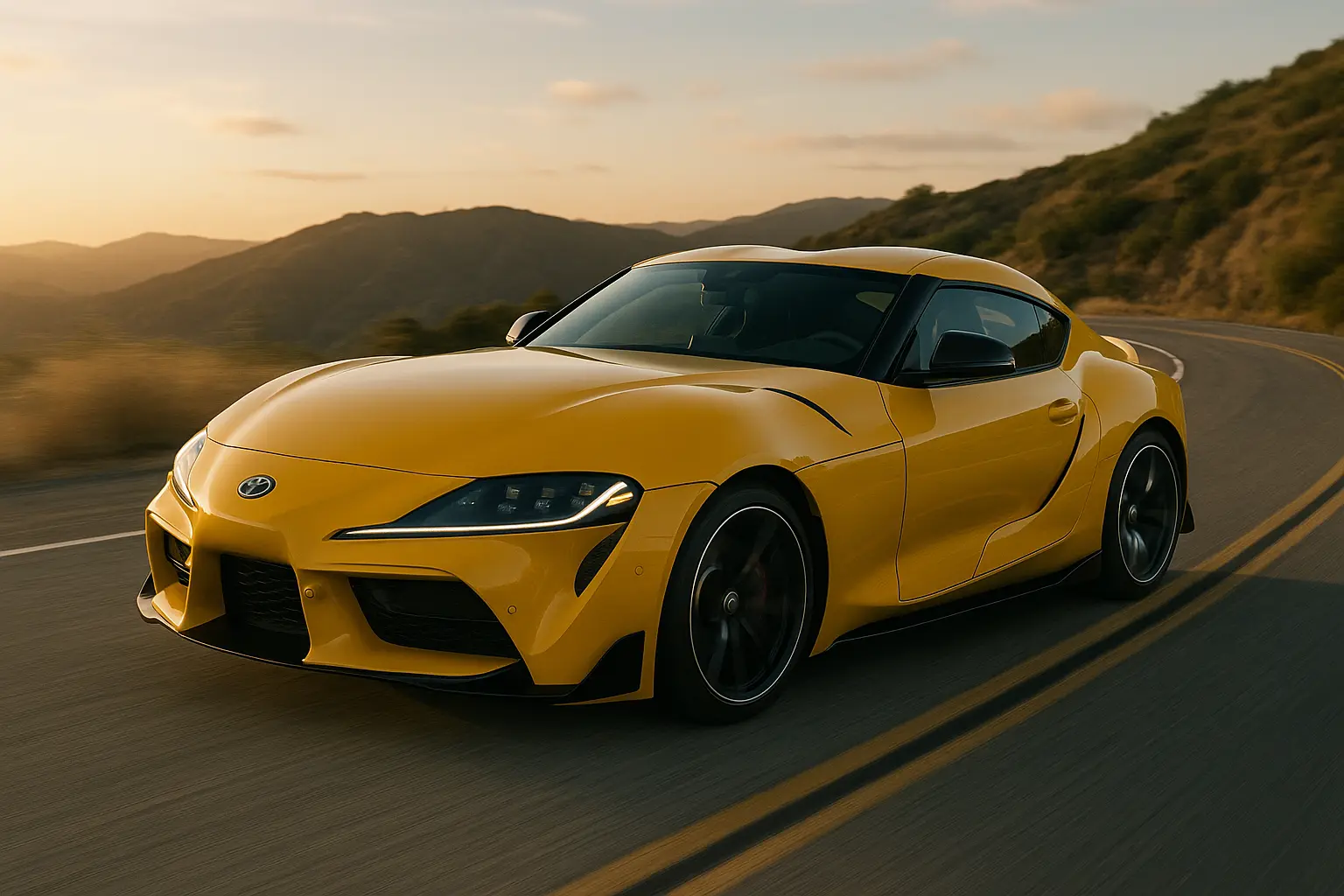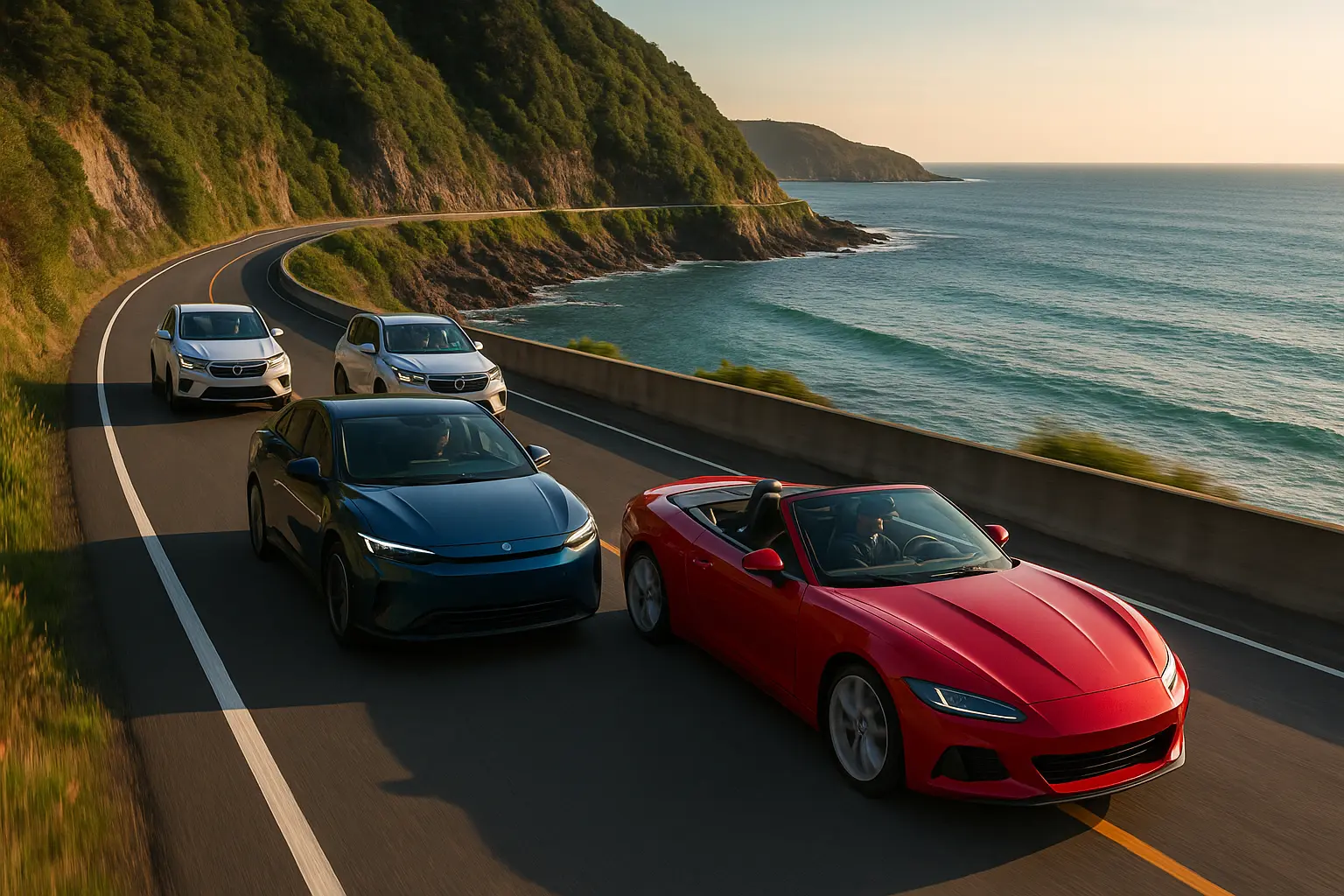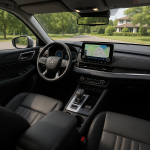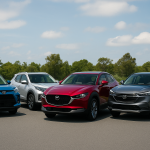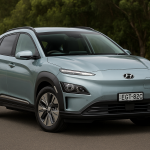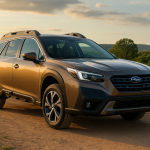Australia has always been a land of driving enthusiasts. From the wide-open stretches of the outback to the tight coastal roads of New South Wales and the Great Ocean Road in Victoria, Aussies love cars that combine raw speed with handling finesse. The performance car segment has evolved rapidly in 2025. Today’s buyers are spoilt for choice—whether it’s a supercharged V8, an agile hot hatch, or an all-electric super sedan.
In this comprehensive guide, we explore the top performance cars available in Australia in 2025, breaking down their speed, specs, price, and driving character. We’ll also cover how performance cars are adapting to new technologies, from hybrid powertrains to AI-driven driving assists, and what makes each car stand out.
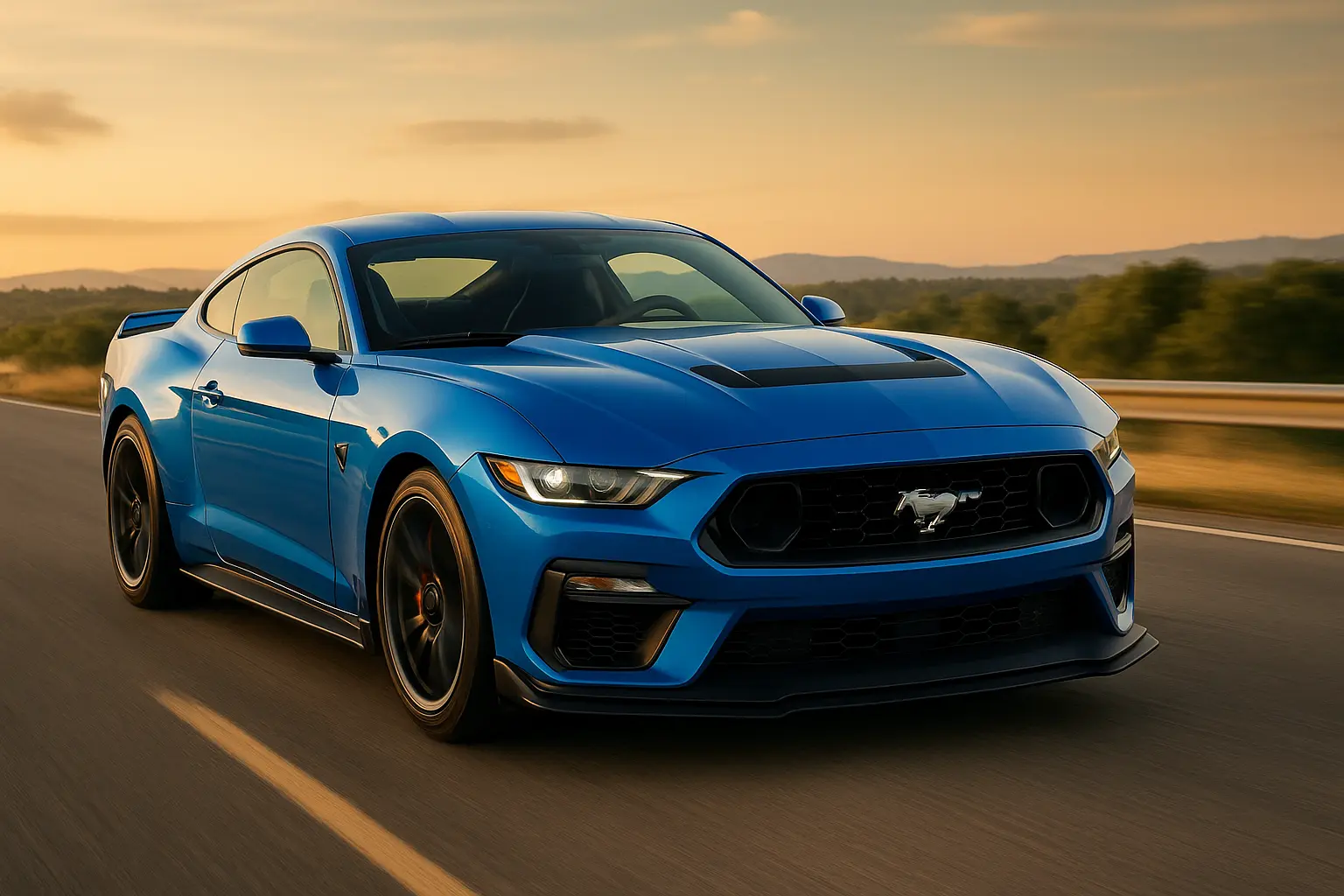
What Defines a Performance Car?
Performance cars are not simply about horsepower or 0–100 km/h times. They are designed with a combination of:
Engine Power & Torque – High horsepower and torque for blistering acceleration.
Handling Precision – Sport-tuned suspension, sharp steering response, and track-ready dynamics.
Design & Aerodynamics – Sleek, aggressive exteriors often inspired by motorsport heritage.
Braking & Safety – Performance brakes and advanced stability control to match speed with safety.
Driver Engagement – A visceral connection between the driver and the machine, whether petrol, hybrid, or electric.
The Evolution of Performance Cars in Australia
Traditionally, Australia’s performance icons were Ford Falcons, Holden Commodores, and HSV specials. But with Holden’s exit and the global move towards electrification, the landscape has changed. Now, the field includes:
European sports coupes (BMW M3, Porsche 911, Audi RS models)
Japanese legends (Nissan Z, Toyota Supra, Subaru WRX)
American muscle reborn (Ford Mustang, Chevrolet Corvette)
Electric disruptors (Tesla Model S Plaid, Porsche Taycan, Hyundai Ioniq 5 N)
This diversity means performance seekers in Australia now have more options than ever before.
Top Performance Cars Australia 2025
Ford Mustang Dark Horse (2025)
The Mustang remains one of the most popular performance cars in Australia. The new Dark Horse edition takes it to another level.
Engine: 5.0-litre Coyote V8
Power: ~373 kW
0–100 km/h: 4.1 seconds
Price in Australia: From $80,000+ on-road
What makes the Dark Horse special is its blend of raw V8 character with modern tech. Adaptive suspension, a track-ready cooling system, and improved aerodynamics make it a true muscle icon adapted for Aussie roads.
Toyota GR Supra (2025 Update)
Co-developed with BMW, the GR Supra is a lightweight, turbocharged sports car with a heritage that dates back decades.
Engine: 3.0-litre turbo inline-six
Power: 285 kW
0–100 km/h: 4.4 seconds
Price: ~$95,000 drive-away
For Australians who love corner carving, the Supra’s perfect 50:50 weight distribution makes it a joy. The 2025 update adds improved interior features and driver aids.
Nissan Z Nismo
The Nissan Z Nismo is built for enthusiasts who want JDM performance with modern flair.
Engine: 3.0-litre twin-turbo V6
Power: 313 kW
0–100 km/h: 4.3 seconds
Price: From $92,000+
It balances retro Z-car styling with cutting-edge performance. Tuned suspension and lightweight components make it a serious contender in the affordable performance bracket.
BMW M3 Competition xDrive
For those seeking German engineering precision, the BMW M3 Competition remains the benchmark sports sedan.
Engine: 3.0-litre twin-turbo straight-six
Power: 375 kW
0–100 km/h: 3.5 seconds
Price: $160,000+
The xDrive AWD system gives it incredible traction, making it one of the fastest daily-drivable performance cars in Australia.
Porsche 911 Carrera GTS (992.2)
The Porsche 911 continues to define what a performance car should be.
Engine: 3.0-litre twin-turbo flat-six
Power: 353 kW
0–100 km/h: 3.3 seconds
Price: ~$290,000+
While expensive, the 911 GTS offers a driving experience unmatched in precision and balance. On winding Australian roads, it feels at home.
Tesla Model S Plaid (2025)
For electric performance enthusiasts, the Model S Plaid delivers supercar-level acceleration.
Power: 760+ kW (Tri-motor AWD)
0–100 km/h: ~2.1 seconds
Range: 600+ km
Price: From $200,000
It’s not just about straight-line speed—the Plaid offers cutting-edge tech, over-the-air updates, and practical usability.
Hyundai Ioniq 5 N
Hyundai shocked the world with its first true EV performance car.
Power: 478 kW with boost
0–100 km/h: 3.4 seconds
Price: ~$120,000 in Australia
It blends EV silence with rally-inspired handling modes and simulated gearshifts, giving enthusiasts a new kind of thrill.
Chevrolet Corvette C8 Stingray
The Corvette brings mid-engine supercar design at a relatively attainable price.
Engine: 6.2-litre naturally aspirated V8
Power: 369 kW
0–100 km/h: 3.0 seconds
Price: ~$150,000+
It’s the first time Australians officially get access to the Corvette through local dealerships, and demand is huge.
How Performance Cars Adapt to Australian Roads
Performance cars in Australia must tackle unique driving conditions:
Long Highways: Cars like the BMW M5 and Tesla Plaid thrive with high-speed stability.
Twisty Coastal Roads: Compact, agile cars like the Toyota GR86 and Mazda MX-5 shine here.
Outback Toughness: Hot weather durability and cooling systems are crucial—muscle cars and turbocharged engines face real testing.
Urban Driving: Smaller hatches like the Hyundai i30 N or VW Golf R balance performance with practicality.
Petrol vs Hybrid vs Electric Performance Cars
Petrol Icons: Ford Mustang, Porsche 911 – offering raw sound and mechanical thrills.
Hybrid Power: Ferrari 296 GTB, McLaren Artura – blending efficiency with unmatched acceleration.
Electric Pioneers: Tesla Plaid, Porsche Taycan, Hyundai Ioniq 5 N – redefining speed benchmarks with instant torque.
Australia’s market now supports all three, giving buyers options depending on budget, lifestyle, and sustainability priorities.
Key Factors Before Buying a Performance Car in 2025
When choosing a performance car in Australia, consider:
Budget: $70k hot hatches vs $300k+ supercars.
Fuel Type: Petrol thrill vs hybrid compromise vs electric future.
Insurance Costs: Performance cars attract higher premiums.
Resale Value: Japanese cars often hold better value than niche European models.
Practicality: Sports SUVs like the Porsche Macan GTS combine power with daily usability.
Servicing & Ownership Costs: Tyres, brakes, and premium fuel all add up.
Future of Performance Cars in Australia
Performance cars will continue to evolve. Expect to see:
More Electric Options: EVs are proving they can be just as exciting as petrol.
AI & Driving Modes: Cars adapting in real time to driver behaviour.
Carbon Neutrality: Manufacturers developing synthetic fuels and hybrid systems.
Accessible Thrills: Hot hatches and entry-level sports cars ensuring younger Aussies can still join the fun.
Conclusion
The 2025 lineup of performance cars in Australia is the most exciting yet. Whether you want the classic V8 rumble of a Mustang, the precision of a Porsche 911, or the instant EV power of a Tesla Plaid, there’s a car tailored for your driving thrill.
One thing is certain—performance cars remain the ultimate expression of passion, speed, and driving excitement in Australia.
Leave a comment
Your email address will not be published. Required fields are marked *


